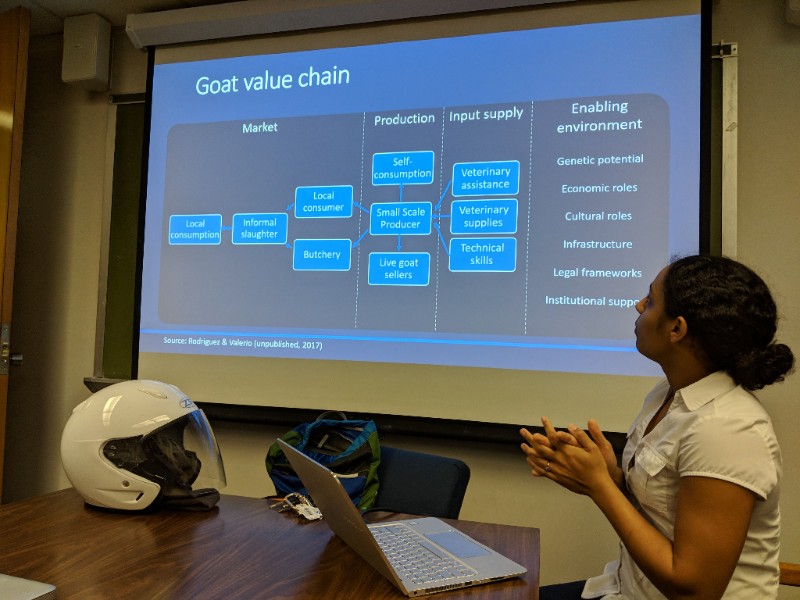 On February 19, Valerie Valerio (University of Florida) gave presented, “Systems Modeling for Quantitative Value Chain Analysis: a Case Study from the Lowveld of Swaziland.” The lecture centered on her doctoral research on the use of value chains for livestock management and investment. She began the lecture by discussed what a value chain is—the full range of activities required to bring a product or service through conception, production, delivery, and disposal. Throughout this process, value is added to the product or service.
On February 19, Valerie Valerio (University of Florida) gave presented, “Systems Modeling for Quantitative Value Chain Analysis: a Case Study from the Lowveld of Swaziland.” The lecture centered on her doctoral research on the use of value chains for livestock management and investment. She began the lecture by discussed what a value chain is—the full range of activities required to bring a product or service through conception, production, delivery, and disposal. Throughout this process, value is added to the product or service.
Two models are used in the analysis of livestock value chains, agent based models and system dynamics models. For the purpose of her project, Valerie uses system dynamic models, which allows her to understand dynamic behavior of complex systems. Her work centers on goat value chains, which she modeled from data collected from surveys, focus groups, and other sources. She also created an age cohort model, which she constructed from literature review, surveys, key informant interviews, and information from Swaziland Water And Development Enterprise (SWADE). She ran this model monthly to estimate population growth, as well as losses to consumption, sales, and death. Valerie also talked about testing the sensitivity of the model through a global sensitivity and uncertainty analysis. This test found that adult goat mortality was the most important factor for population variability; however other interactions impact this result meaning that reducing goat mortality alone won’t resolve population changes. Valerie concluded with recommendations for future work. She argues that a baseline study is needed, with a focus on mortality, to acquire context-specific data.